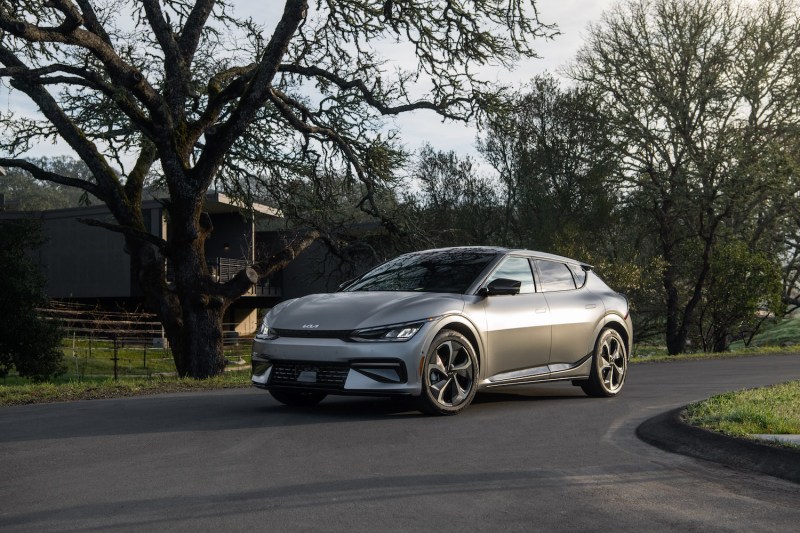[ad_1]
Automakers could also be popping out with electrical automobiles, however the folks working the manufacturers aren’t assured that electrical automobiles will catch on. In a latest international auto survey by KPMG, international automotive executives expressed concern over the rate of EV adoption in comparison with final 12 months, citing financial concern and continued provide chain issues.
Roughly 900 automotive executives (greater than 200 respondents had been CEOs and a further 200 had been C-level executives) took half in KPMPG’s annual auto survey. the vast majority of respondents, 76%, expressed issues of how excessive rates of interest and inflation will adversely have an effect on their enterprise subsequent 12 months. For auto executives within the U.S., the determine was increased at 84%. One of many main issues that auto executives have is the adoption of electrical automobiles within the U.S. and globally by 2030.

Final 12 months, KPMG’s survey revealed that estimates of recent electrical automobiles being offered by 2030 ranged from 20% to 70%. This 12 months, the determine ranged from 10% to 40%. The median expectation for EV gross sales within the U.S. had been that they’d symbolize 35% of recent automobile gross sales. This determine is properly beneath what it was from final 12 months when it was 65% and is way lower than the Biden administration’s aim of getting EVs account for 50% of recent automotive gross sales by 2030.
Automotive executives are much less optimistic in regards to the adoption of electrical automobiles this 12 months for a number of causes. Within the U.S., the Inflation Discount Act made large changes to the EV federal tax credit. Stricter value caps are in place for EVs, and electrical automobiles have to satisfy ludicrous necessities for battery parts, remaining meeting factors, and important parts. These necessities have drastically lowered the variety of EVs which might be eligible for the $7,500 federal tax credit score. Different causes embrace the high prices of vehicles, rising costs for battery parts and uncooked supplies, fears of a recession, and provide chain constraints.
Gary Silberg, KPMG international head of automotive, instructed CNBC that long-term optimism for EVs nonetheless exists, however automakers and automotive executives are beginning to change into extra life like.“There’s nonetheless a way of optimism long run, and but, most necessary, there’s a way of realism within the close to time period. You see this realism all through the complete survey,” stated Silberg. “You may be long-term optimistic, however close to time period, you’ve received to be very life like. It’s not rainbows and butterflies and euphoria anymore, it’s sport on.”
Unsurprisingly, executives that took half within the survey imagine that Tesla will proceed to be a world chief in EVs, although its lead over conventional manufacturers is anticipated to shrink. What’s shocking is that executives imagine that Apple might be a market chief in EVs within the very close to future. Whereas Apple has reportedly been engaged on an EV for years, it hasn’t showcased something concrete. Audi and BMW adopted carefully behind Tesla as automakers that can lead the EV automotive market in 2030.
Editors’ Suggestions
[ad_2]
Source_link





